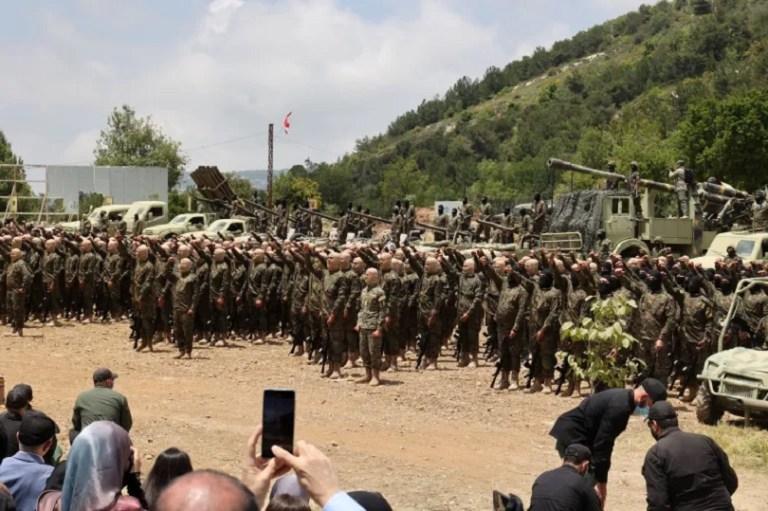
Hezbollah conducts wargames near Lebanon’s border with Israel
Lebanon’s Hezbollah movement has carried out military exercises near the country’s southern border with Israel in a show of its military power.
About 200 Hezbollah fighters used live ammunition and an attack drone to take part in the exercises on Sunday in Aaramta, 20km (12 miles) north of the Israeli border.
The drills took place ahead of the anniversary of Israel’s withdrawal from southern Lebanon on May 25, 2000. It was the largest demonstration of Hezbollah’s military might in years.
Hezbollah fighters carried out simulated raids involving sniper and drone attacks against Israeli targets as part of the exercise. In another case they engaged in attacks across a mock border. The group displayed heavy and light arms, including anti-aircraft weapons, rocket launchers and rocket-propelled grenades.
“If some people in the Zionist entity [Israel] dream of doing something foolish, … we will rain down our precision missiles and all the weapons at our disposal,” senior Hezbollah official Hashem Safieddine, was quoted as saying by the Agence France-Presse news agency.
The Israeli military, which occasionally conducts exercises simulating a war with Hezbollah, did not comment on the event.
Elias Farhat, a retired Lebanese army general who is a military affairs researcher, told The Associated Press that Hezbollah’s “symbolic show of strength” appeared to be in response to the recent escalation in Gaza, in which Israel killed 30 Palestinians and injured more than 90 in air attacks.
He said it could also be a response to the Israeli nationalist “flag march” on Thursday in occupied East Jerusalem.
Hezbollah-Israel relations
Hezbollah was founded in 1982 to fight the Israeli occupation of southern Lebanon. It is the only Lebanese faction to keep its weapons after the end of the country’s 1975-1990 civil war.
The Shia armed group justifies keeping its arsenal by saying it needs them to resist Israel.
Since a devastating 34-day war between Israel and Hezbollah in 2006, the United Nations Interim Force in Lebanon has acted as a buffer between Beirut and Tel Aviv.
The peacekeeping mission was set up in 1978 near the southern Lebanese border and monitored the withdrawal of Israeli forces in 2000. Although Lebanon and Israel have maintained a cautious calm since then, the border still sees sporadic skirmishes.
In the latest flare-up, Israel launched rare strikes on southern Lebanon last month after rebels fired rockets into Israel, wounding two people.
Israel also regularly targets Hezbollah and Iranian position in Syria, a key ally of both the Shia group and Tehran.
Source » msn





